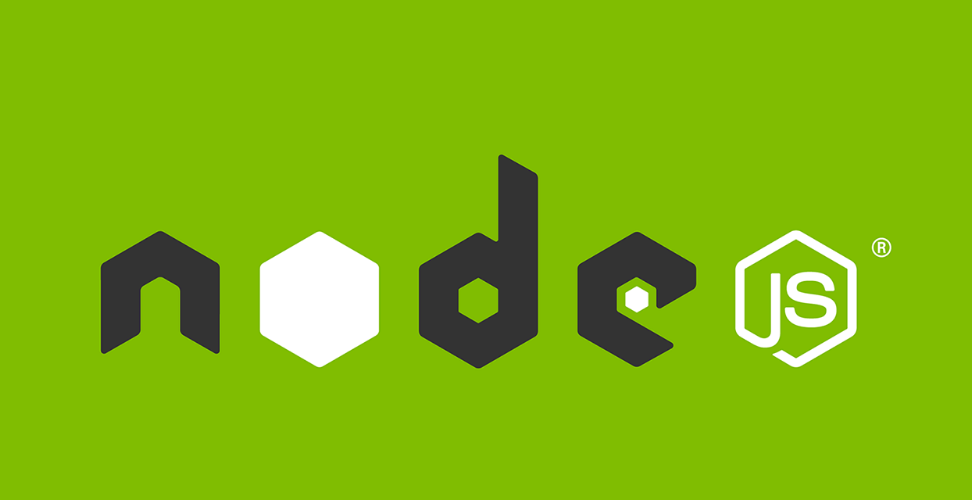Why choosing Node.js is a good idea - 5 minutes read
 Why choosing Node.js is a good idea – Hacker Noon
Why choosing Node.js is a good idea – Hacker NoonBuilt on Chrome’s V8 JavaScript engine using an event-driven, non-blocking I/O model, Node.js is one of the best JavaScript runtimes around.
Being one of the largest ecosystems of open source libraries in the world, the framework is used by a bunch of prominent tech giants such as GoDaddy, Groupon, IBM, LinkedIn, Microsoft, Netflix, Walmart, Yahoo! and Cisco Systems among others. More and more companies will be found evolving and integrating a diverse range of services in the same suite.
Initially created by Ryan Dahl in 2009, Node.js aims to enhance optimization in throughput and scalability in web applications. Maybe that’s the reason why it has broader acceptance and why it is becoming a trend in backend programming. It may interest you to know that some even claim that it has the potential to replace Java for good — dethroning it as the most trusted language, a spot that Java has held since 1995.
Building real-time applications, Internet of Things, and microservices is what Node.js thrives for and it has more than a billion downloads. One can expect the framework to gain traction faster than any other technology and it ranks in the top most-in-demand developer skills. Below I would like to mention a few benefits of Node.js development to take into account:
Furthermore, I would like to demonstrate a few Node.js development tips and best practices to enhance yourself as a developer.
Starting from performance problems to error handling problems, structure problem, we as Node.js developers end up facing a lot of difficulties — all due to a large number of code lines. Handling large project becomes one of the major issues. So what needs to be done? Make use of Modularization of Code; this will not just debug the code easily but also reuse code in the best possible manner, read the code well.
ES modules are widely being used with transpilers or the /esm library. Being natively supported since Node.js 8.5 behind the — experimental-modules flag, but there is still a long way until they become production ready. I personally recommend that you learn the foundations now and follow the progress.
One of the most critical features in Node.js is its non-blocking IO and asynchronous runtime. Being a professional one can easily experience speed and flexibility to serve requests much faster compared to other languages. In fact, here it is usually recommended to use asynchronous methods in code. Apart from this, using a CPU in a better manner can solve several performance problems. With the help of an asynchronous programming model, all the tasks continue to work in parallel order thereby making proper use of CPU. The Promise object and the Event Loop are proved to be of immensely helpful, all thanks to this input/output processing.
Leaving bugs in the code can lead to ugly scenarios. There are times where even after successful deployment, there are bugs present in the code. So you should make it a point to listen to error events. In this way, you can pot an error at an early stage and take corrective action accordingly. Error handling is somewhat easy in Node, and you could make use of the same without any major fuss.
Ensuring that your applications are completely secure is the least expected from you as a developer. Fortunately, you will come across a number of useful applications within Node such as Node.JS security, Data Validation, Session Management, Brute Force protection and so on.
Have you already taken a plunge into Node.js development? If no, it’s time to take one! Try implementing and analyzing some of the best practices of JavaScript today onwards. Scope, asynchronous programming, data types, function & objects, and callbacks are some of the aspects that must be mastered into.
Source: Hackernoon.com
Powered by NewsAPI.org
Keywords:
Node.js • Security hacker • Google Chrome • V8 (JavaScript engine) • Event-driven programming • Asynchronous I/O • Node.js • JavaScript • Runtime system • Open-source model • Library (computing) • Software framework • Technology • GoDaddy • Groupon • IBM • LinkedIn • Microsoft • Netflix • Walmart • Yahoo! • Cisco Systems • Web service • Node.js • Node.js • Mathematical optimization • Throughput • Scalability • Web application • Java (programming language) • Trust (emotion) • Language • Java (programming language) • Real-time computing • Internet of things • Microservices • Node.js • Software framework • Technology • Software development • Skill • Node.js • Node.js • Software development • Software development • Exception handling • Data structure • Node.js • Software developer • Source code • Project management • Modularity • Source code • Debugging • Source code • Code reuse • Source code • Source code • Modularity • Library (computing) • Node.js • Node.js • Asynchronous I/O • Input/output • Asynchronous I/O • Run time (program lifecycle phase) • Software development process • Machine code • Central processing unit • Computer performance • Parallel computing • Programming model • Task (computing) • Parallel computing • Central processing unit • Futures and promises • Object-oriented programming • Event loop • Input/output • Software bug • Source code • Software deployment • Software bug • Source code • Exception handling • Computer program • Computer security • Software development • Application software • Node.js • Computer security • Data validation • Session (computer science) • Brute-force attack • Node.js • JavaScript • Scope (computer science) • Parallel computing • Data type • Function object • Callback (computer programming) • Aspect-oriented programming •